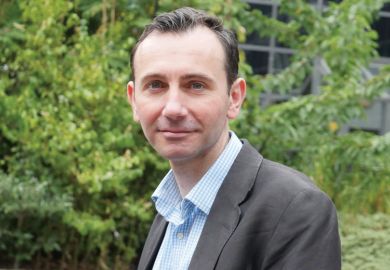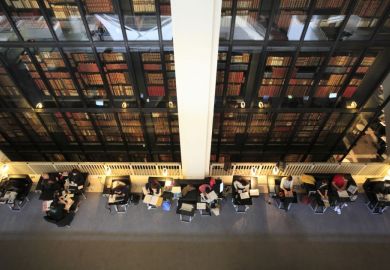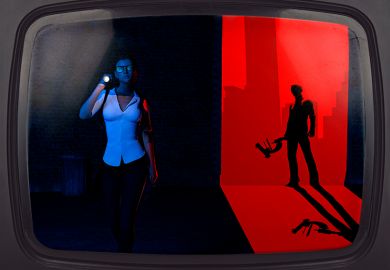Nathalie Coste-Cerdan is a leading figure in the French film world. She held a number of senior positions at cable television channel Canal+ before being made head of cinema in 2013. In July, she was announced as the new executive director of the world-renowned French state film school La Fémis, part of PSL Research University.
Where and when were you born?
Toulouse, 1960. My parents were teachers at a high school.
How has this shaped you?
I have been influenced by my parents’ jobs. I was impressed by their involvement, and their love for [the] transmission [of knowledge]. If I’m in a higher education institution today, I owe it to them.
What do you hope to achieve in the role?
I would like to maintain the high quality of education of La Fémis, besides trying to widen access to new film professionals and [create] new disciplines. I aim to strengthen international relationships with foreign schools and welcome a higher proportion of foreign students. I would also like to make the school more open for students from poorer backgrounds.
You’re moving from the film industry to higher education. What were the motivations for making this transition?
Yes, it’s a major change. First, I didn’t choose to leave my previous job. I was in charge of films and series acquisitions at Canal+, a key place for the film industry in France. In late 2015, Vincent Bolloré [chairman of Canal+ parent company Vivendi] decided to replace most of the executives of the previous team. I was part of that team, and left with regrets. But I took it as an opportunity to start a new story. To take up a leadership position at a higher education institution was a way to stay in the field of cinema and transmit some of my knowledge about how to improve French films.
How important is cinema in society?
Cinema continues to reach many people, and to influence the way that they think, even if [television] series are challenging films in this area. In France, French films are tackling political issues more than in the past – the 2007 Clearstream banking scandal, for example – and revealing social changes on topics such as [sexuality in] Abdellatif Kechiche’s Blue Is the Warmest Colour.
Film and specialist arts schools are sometimes seen as the preserve of the wealthy. How do you hope to ensure that the talents of less-privileged students are not lost to the cinematic world?
We spend a lot of time every year presenting our school to many high schools in underprivileged areas in France to make [students] envision film studies as a possible, not unreachable, dream. There are also special programmes such as the “Egalité des chances”, which prepares 18 less wealthy students for the [entrance] exam every year. The rates of success are already really impressive.
French directors are feted as the luminaries of “art cinema”. Do modern directors still command the same respect as some of their predecessors?
There is no [recognisable] current movement as in the past with the French New Wave, but there are still many talented directors who regularly win international prizes, Jacques Audiard and Kechiche, and [emerging] ones, Céline Sciamma, Rebecca Zlotowski and Justine Triet. They are lucky to live in a country with such a passion for films.
Do you think that there is a rivalry between La Fémis and other noted film schools such as the Beijing Film Academy?
There is no rivalry and we have strong relationships. La Fémis has a network of exchanges with 13 global schools including Beijing, Columbia University and the London Film School. It’s a fantastic opportunity for our students, who spend several weeks in these schools to discover other cultures and other pedagogies. They really like this part of their studies.
The film world has long been criticised for its gender discrimination. What do you think the current state of the film world is in terms of gender bias? Is the problem a major one?
Yes. We must fight against discrimination. When I was a student, I was member of “Le Cercle Féminin”, a feminist association. And recently I was involved in a group of women from the film world. In France, female film-makers are really numerous in “auteur cinema”, far less in mainstream films. It must change. They also suffer from salary discrimination like their US counterparts. The way women are represented in films is another kind of discrimination, [although] I think times are changing. Positive and leading female characters are becoming more frequent.
How can the cinema industry combat gender discrimination in the film world?
Women must be vigilant. In France, an association called “Le Deuxième Regard” (The Second Look) draws attention to any kind of discrimination and acts as a lobby against these issues.
What do you think is the biggest threat facing the film world?
To yield to mainstream pressure and forget that making movies is an art.
What kind of undergraduate were you?
I didn’t feel very at ease at [business school] HEC Paris, because I felt different – not Parisian, not very wealthy. So I involved myself in many external activities such as sport, politics and feminism.
What advice would you give to your younger self?
To be confident, and to stay curious and generous.
What keeps you awake at night?
I’m usually awake because of unsolved issues of the day. I start reading books. Currently, I go out and look at the stars, and wish upon shooting stars.
Appointments
David Reynolds has been appointed head of Swansea University’s School of Education. Professor Reynolds, who joins the institution on 1 October, is an internationally renowned education expert and will oversee the introduction of a new education degree. He has previously run undergraduate academic education courses at Cardiff, Exeter and Newcastle universities. “Wales has a major need to improve its education, and to do this needs at least one world-class university education department to show the way forward,” Professor Reynolds said. “We intend to be that. We have established degrees to teach education to undergraduates, and in time we will be relating to schools directly with in-service, continuing professional development and research degree work.”
Paola Lettieri has taken up her position as academic director of UCL East, University College London’s new campus at the Queen Elizabeth Olympic Park in Stratford. Professor Lettieri, professor of chemical engineering and vice-dean (strategic projects) in UCL’s Faculty of Engineering Sciences, took up her role at the beginning of August. She has played a key role in the development of the UCL East project since 2014. Andrew Hudson-Smith, director of the UCL Bartlett Centre for Advanced Spatial Analysis, has also started his role as deputy academic director. “We are delighted to appoint such an inspiring academic team to lead the development of our exciting academic vision for UCL East,” said Michael Arthur, UCL’s president and provost.
The Royal Northern College of Music has appointed violinist Donald Grant as deputy head of chamber music. He takes up his role in September. Birkbeck, University of London has announced two appointments to its history of art department. Mark Crinson has joined as professor in the history and theory of architecture. Steve Edwards, who joins in September, has been made professor of history and theory of photography.
POSTSCRIPT:
Print headline: HE & me
Register to continue
Why register?
- Registration is free and only takes a moment
- Once registered, you can read 3 articles a month
- Sign up for our newsletter
Subscribe
Or subscribe for unlimited access to:
- Unlimited access to news, views, insights & reviews
- Digital editions
- Digital access to THE’s university and college rankings analysis
Already registered or a current subscriber?







